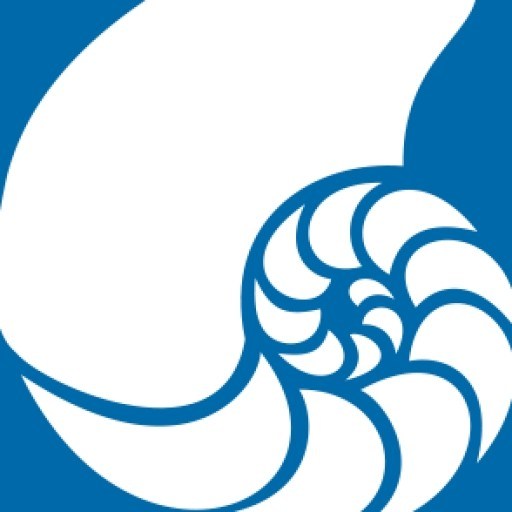Photos of university / #pennstate
The Bachelor of Science in Health Education at The Pennsylvania State University is a comprehensive undergraduate program designed to prepare students for careers in promoting health and wellness across diverse populations. This program equips students with the essential knowledge and practical skills necessary to develop, implement, and evaluate health education programs in various settings such as schools, healthcare facilities, community organizations, and corporate environments. The curriculum covers a broad range of topics including human health and development, nutrition, behavioral sciences, epidemiology, health policy, and program planning. Students gain valuable experience through hands-on learning opportunities, internships, and community engagement, which foster the application of theoretical concepts in real-world scenarios. The program emphasizes a multidisciplinary approach, integrating biological, psychological, and social aspects of health to address complex health challenges effectively. Graduates of this program are prepared to pursue careers as health educators, community health workers, health promotion specialists, or continue their education in graduate studies in public health, health education, or related fields. The program is supported by experienced faculty members who are committed to mentoring students and advancing health education research. By completing this degree, students develop critical thinking, communication, and leadership skills essential for making meaningful contributions to public health and improving community well-being. With a strong foundation in health sciences combined with practical experience, graduates are well-positioned to promote healthy lifestyles, advocate for health policies, and contribute to disease prevention efforts locally and globally. The Pennsylvania State University’s Health Education program is dedicated to fostering a diverse, inclusive environment that encourages innovation and lifelong learning in the field of health promotion.
Prescribed Core Courses (21 credits)
- HLHED 415 Planning and Developing Health Education Programs (3)
- HLHED 456 Advanced Techniques in School and Community Health Education (3)
- EDUC 440 Educational Statistics and Measurement (3) or
EDPSY 400 Introduction to Statistics in Educational Research (3) - HLHED 552 Current Health Education Issues (3)
- HLHED 553 Multicultural Health Issues (3)
- EDUC 586 Educational Research Design (3) or
HLHED 530 Research Techniques in Health Education (3) - HLHED 591 Culminating Health Education Seminar (3)
Elective Courses (9 credits)
A minimum of 9 credits are to be selected in consultation with student's advisor from the following HLHED courses:
- HLHED 406 Human Sexuality (3)
- HLHED 420 Development of Stress Management Programs for Health Education (3). Prerequisite: permission of program
- HLHED 443 Alcohol and Drug Education (3). Prerequisite: permission of program
- HLHED 497 Special Topics (1-9)
- HLHED 501 World Health Promotion (3)
- HLHED 516 Evaluation of Health Education and Promotion Programs (3)
- HLHED 582 Spirituality and Culture in Health and Education (3)
- HLHED 590 Colloquium (3)
- HLHED 596 Individual Studies (1-9)
- HLHED 597 Special Topics (1-9)
Students also may select electives from suitable courses in Psychology, Community Psychology and Social Change, Education, Training and Development, or Health Administration programs. Note that 6 credits must be at the 500-level. Please contact the program office for further information about electives.
- Baccalaureate degree from a regionally accredited U.S. institution or
- Tertiary (postsecondary) degree that is deemed comparable to a four-year bachelor's degree from a regionally accredited U.S. institution.
- Applicants will be required to arrange for official transcripts/documents (for institutions outside the U.S. documents may include marksheets, record of courses, degree/study certificate, original diploma, etc) to be sent from all post-secondary institutions attended and official English translation if the language of instruction is not English).
- All international applicants must take and submit scores for the TOEFL (Test of English as a Foreign Language) or the IELTS (International English Language Testing System). The minimum acceptable score for the TOEFL is 550 for the paper-based test, or a total score of 80 with a 19 on the speaking section for the internet-based test (iBT). Applicants with iBT speaking scores between 15 and 18 may be considered for provisional admission, which requires completion of specified remedial English courses ESL 114G (American Oral English for Academic Purposes) and/or ESL 116G (ESL/Composition for Academic Disciplines) and attainment of a grade of B or higher. The minimum acceptable composite score for the IELTS is 6.5. Graduat
- Students must have an overall minimum undergraduate grade-point average of 2.50 and a junior/senior grade-point average of 3.00 (on a 4.00 scale) for admission into the program
- Two letters of recommendation
- This program has rolling admission, that is, no specific deadline. Note that it may take 4-6 weeks to receive transcripts and process an application.
The Pennsylvania State University offers a variety of financial aid options to support students pursuing degrees in Health Education. Students enrolled in Health Education programs can access federal financial aid programs such as Pell Grants, which are designed to assist undergraduate students with demonstrated financial need to cover tuition, fees, and living expenses. The university also participates in federal work-study programs, allowing students to earn money through part-time employment on or off-campus to help finance their education.
In addition to federal aid, students may be eligible for state grants and scholarships specific to Pennsylvania residents, which can significantly reduce the overall cost of attendance. The university’s Office of Undergraduate Admissions provides information on numerous merit-based scholarships awarded based on academic achievement, leadership qualities, or commitment to health and community service. Many departmental scholarships are also available for students demonstrating outstanding potential in health education fields.
Students are encouraged to complete the Free Application for Federal Student Aid (FAFSA) early each academic year to determine their eligibility for federal and state aid programs. The university’s financial aid office offers personalized counseling and assistance to help students navigate their options, apply for numerous grants, scholarships, and loan programs, and develop sustainable financial plans to support their studies and future careers.
Internal financing options at Penn State include payment plans that allow students to spread the cost of tuition over several installments, making education expenses more manageable. Loan programs, such as federal Direct Loans, are available for eligible students who need additional funding, with terms designed to be manageable post-graduation. The university also provides resources and guidance on private loan options for students who require supplementary financial assistance beyond federal and state aid.
For students pursuing advanced degrees or specialized tracks in health education, funding opportunities may include departmental assistantships, research grants, or fellowships, which provide stipends and tuition waivers in exchange for teaching or research responsibilities. Many students leverage external funding sources, including scholarships provided by health organizations, foundations, or professional associations related to health education or public health.
Overall, students at Penn State’s Health Education programs benefit from a comprehensive suite of financial support options designed to facilitate access to higher education, reduce financial barriers, and promote academic success. Early planning, thorough research, and active engagement with financial aid advisors are crucial steps for students to maximize available resources and ensure smooth financing of their educational journey.
The Pennsylvania State University offers a comprehensive program in Health Education designed to prepare students for careers in health promotion, disease prevention, and health advocacy. The program emphasizes the development of knowledge, skills, and attitudes necessary to improve individual and community health. Students enrolled in this program receive a well-rounded education that includes coursework in health psychology, community health, epidemiology, health policy, and behavioral science. The curriculum is structured to promote an understanding of the social, cultural, and environmental determinants of health and the methods to address health disparities within various populations.
Throughout the program, students engage in practical experiences such as internships, service-learning projects, and community outreach activities, which enable them to apply theoretical knowledge in real-world settings. The program fosters critical thinking, effective communication, and leadership skills essential for public health practitioners and health educators. Graduates are prepared for various roles, including health education specialist, community health worker, program coordinator, and health promoter. The program also offers opportunities for further education and specialization through graduate studies in public health or related fields.
Faculty members involved in the program are experienced professionals and researchers dedicated to advancing health education and health promotion. They provide mentorship and guidance to students, encouraging innovative approaches to tackling health challenges. The university's resources, including state-of-the-art laboratories, research centers, and partnerships with health organizations, support student learning and research activities. The program aims to create competent professionals who can contribute to improving health outcomes and fostering healthier communities locally, nationally, and globally.







